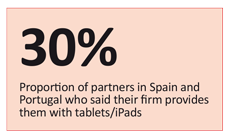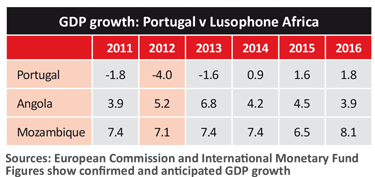Sports law work soars due to professionalisation and regulation
Iberian law firms’ sports practices growing by up to 50 per cent as football clubs get richer – due to a major TV deal – and rules are tightened
The increasing professionalisation of sports clubs in Spain as well as the trend for stricter regulation of sporting entities is driving a boom in work for law firms.
Many football clubs, in particular, are beginning to become more professionally run organisations as increasing regulation – such as UEFA´s and the Spanish Football League´s financial fair play regulations – imposes stricter frameworks in which clubs must operate, according to Baker & McKenzie partner David Díaz. He adds: “Spanish clubs were traditionally run by self-made men with organisational structures not always consistent with the demanding needs of a professional football club.”
According to Díaz, more international law firms want to get involved in the sports industry, but they need a clear strategy. “We have a very ambitious plan,” explains Díaz, who says his firm´s sports practice grew 50 per cent in the last year. “We are recruiting people with a sports law background – the challenge is to understand the industry, which involves TV rights, transfers, regulatory issues, young player regulations, and sanctions, for example.” This emphasis is demonstrated by the fact a Baker & McKenzie associate, Maheta Molango, has been seconded to Atlético Madrid (see box). Other clients advised by the firm include Real Madrid, Real Sociedad, UEFA and FIFA.
Cuatrecasas, Gonçalves Pereira partner Jorge Pecourt agrees demand for sports law advice is growing as clubs become more professional and adds: “Athletes also require more legal and tax services because of regulatory changes”. He continues: “Furthermore, tax audits for sports agents, football clubs, and athletes and are becoming more aggressive and more frequent.”
Jordi López Batet, partner at Pintó Ruiz & Del Valle, says demand for legal advice is also driven by evolving sports legislation. He adds: “Also, clubs, athletes and institutions deal with contractual, regulatory, commercial, IP, tax and litigation issues, among others.” Meanwhile, Uría Menéndez partner, Pablo González-Espejo, highlights corporate and finance-related sports work: “Most of the issues we presently deal with are not purely sports-law related but rather legal matters involving companies or institutions engaged in sports.”
Football’s needs more complex
Portuguese lawyers say football-related advice is in high demand. Vieira de Almeida partner Paulo Olavo Cunha says: “Football clubs and the other ‘players’ in the industry have professionalised their corporate and management structures and developed their market-approach strategies, diversifying their investments and thus demand more sophisticated legal advice.”
Dzhamil Oda, lawyer at Morais Leitão, Galvão Teles, Soares da Silva & Associados, says: “Considering the globalisation of this industry and the legal and regulatory complexity, particularly in football, together with the increasing sophistication of relevant stakeholders, law firms must provide more complex services.”
PLMJ’s joint heads of sports law, Paulo Farinha Alves and José Ricardo Gonçalves explain that demand for legal services is no longer focused on transfer windows. Farinha Alves, formerly a director at Sporting Clube de Portugal, adds: “Demand has spread to other times, including the negotiation of sponsorship and merchandising contracts.”
Linklaters provided advice in relation to the Portuguese Professional Football League’s complaint to the Competition Authority regarding Olivedesportos and, in particular, the acquisition of joint control of Sport TV by Olivedesportos, Portugal Telecom and ZON. “These matters show the huge potential for development of compliance and competition work,” says Carlos Pinto Correia, head of competition at Linklaters in Portugal.












